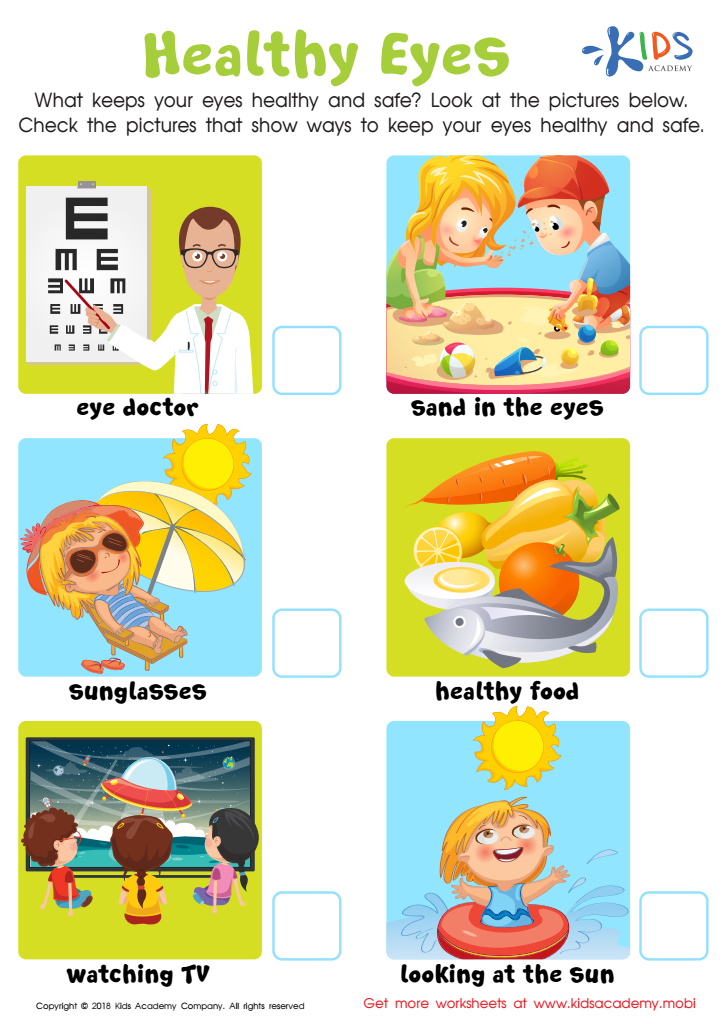Reading comprehension Life Science Worksheets for Ages 3-5
3 filtered results
-
From - To
Discover our engaging Reading Comprehension Life Science Worksheets designed for children aged 3-5! These interactive resources help young learners develop essential reading skills while exploring the fascinating world of life science. Our worksheets introduce basic scientific concepts through simple texts and colorful illustrations, making learning fun and accessible. Kids will enhance their comprehension abilities as they answer questions about animals, plants, and ecosystems. Perfect for early childhood education, these worksheets stimulate curiosity and promote a strong foundation in both reading and science. Explore our collection and support your child's learning journey today!


Herbivores Printable


Carnivores Worksheet


Healthy Eyes Worksheet
Reading comprehension in life science for ages 3-5 is crucial for several reasons. First, it lays the groundwork for a child's cognitive development. At this age, children are naturally curious about the world around them, and exploring life science concepts through reading helps cultivate that curiosity. Understanding basic life cycles, habitats, and the needs of living things promotes critical thinking and scientific comprehension.
Furthermore, early exposure to life science reading materials enhances vocabulary and language skills. Children learn the terminology associated with living organisms and ecosystems, cultivating communication skills that are essential in all areas of education. Teaching young learners to comprehend texts about life science fosters an understanding of narratives and concepts, subsequently aiding their overall literacy skills.
Moreover, comprehension skills gained through life science reading can instill a sense of wonder about nature and the environment, encouraging empathy towards all living things. This foundational knowledge can help children develop responsible attitudes towards conservation and biodiversity as they grow.
In summary, parents and teachers should prioritize reading comprehension in life science for ages 3-5 to support cognitive growth, enhance language skills, and foster a lifelong appreciation for the natural world.
 Assign to My Students
Assign to My Students









.jpg)










